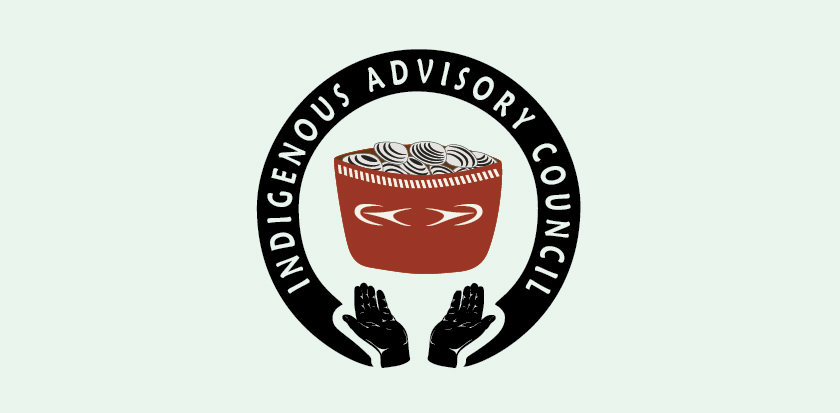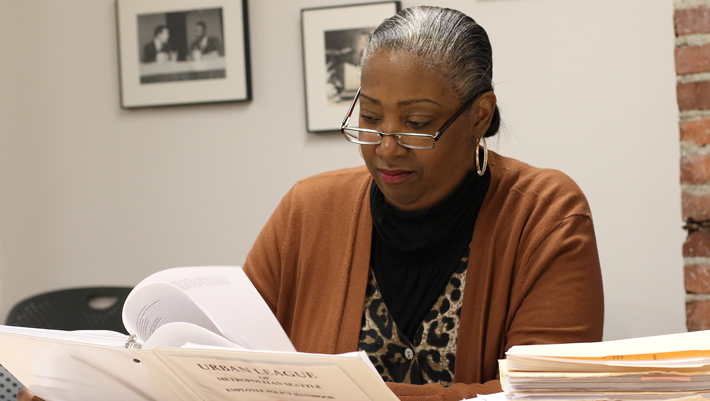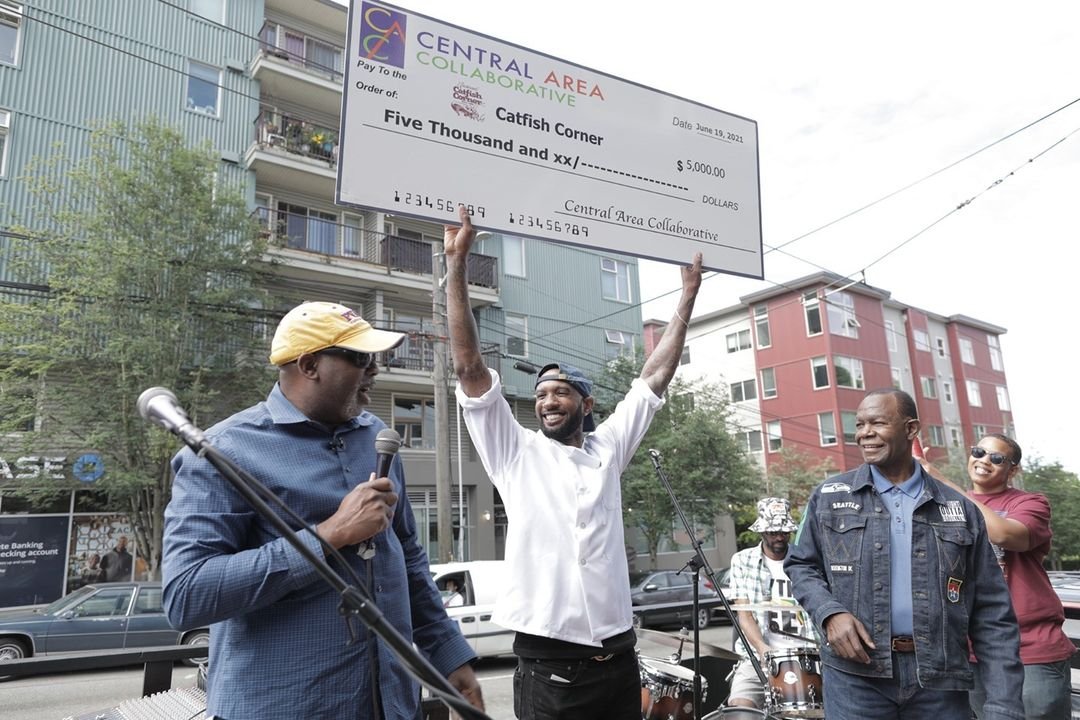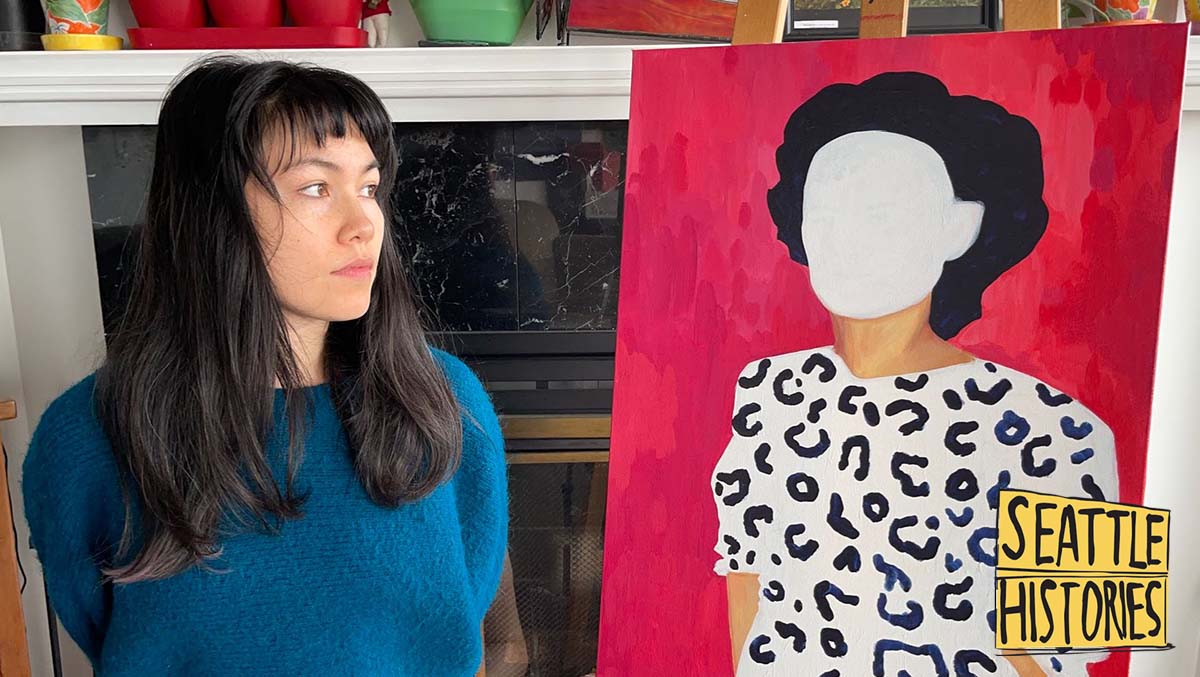
Historic preservation in Seattle begins with community. The Seattle Histories storytelling project highlights the places, people, and events that have shaped the history of Seattle’s communities. These stories, told by community members, emphasize experiences and narratives that may have been overlooked or misrepresented in our city.
Flowers Need Sunlight
by Cleopatra Cutler
This is a love letter. The Seattle Histories project is about places, people, and events that have shaped the history of Seattle’s communities, with a particular focus on stories that have not been prioritized in mainstream media or have been left out of the historical narrative. No one has written about these wonderful, small heroes of mine, so here is an ode to OutWest and the 2011 West Seattle queer scene.

It’s 1999 on the southernmost edge of California Avenue, and I’m a shape-shifting 9-year-old with a nebulous mind. Two men live down the street in a beautiful yellow house with a flowering purple empress tree out front. They emerge in gorgeous rainbow smoking jackets to water a gorgeous rainbow of plants in the front yard, their house emblazoned with a gorgeous rainbow flag. My parents call them roommates, and I think, “Wow, I want a roommate someday.”
By 2002, I’m a gangly, nerdy, mixed Taiwanese girl of 12 with a target on my back, and my classmates teach me the concept of queerness through hate speech and bullying, long before my sexual preferences arrive.
In 2011, I was 21 years old and trying to maintain a straight facade while I lived with my folks over the summer. I’d been out at school in Vermont, but that seemed very far away. In a moment of queer ennui and gratitude, I wrote a thank-you card to the two men in the yellow house for being out and around and kind in my childhood. It had suddenly come as a giant relief to realize that before the bullying, queer love had been modeled to me through the example of my friendly neighbors.
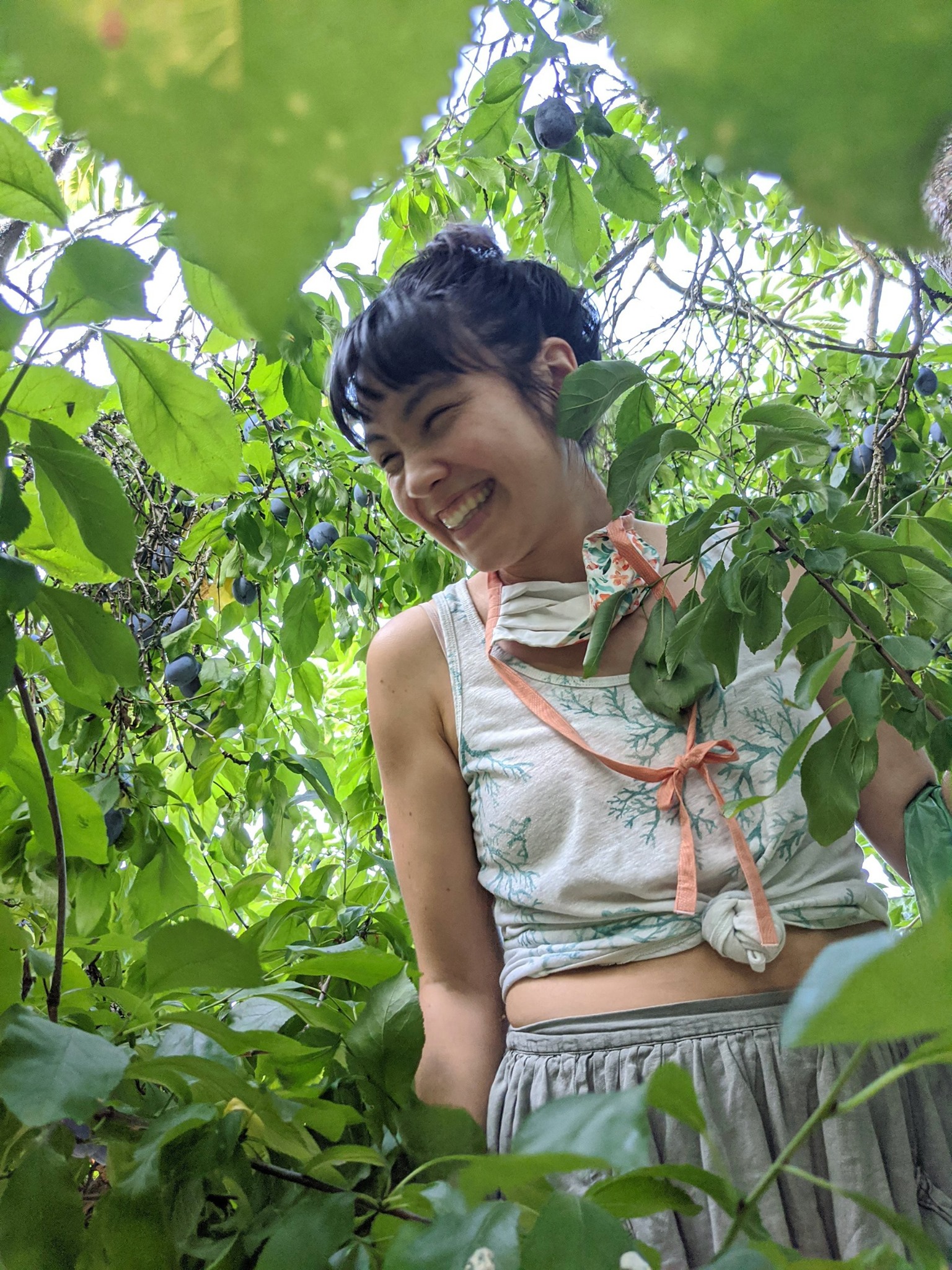
That July, I started bussing to work, and on the bus, I met Daryl Dukes. From the moment we met, we were thick as thieves: two hopeless romantics, unlucky in love, gossiping every morning about our flirtations of the week. To meet a kindred spirit on the bus is to upend one’s worldview. At this point in life, I was intermittently shy and scared or charming and boisterous, and it all had to do with how safe I felt. Everyone feels like this sometimes: a flower that’s a bit scared to bloom. In college, I’d found a little circle of BIPOC queer friends, but without my community, the bud had closed back up. Daryl Dukes was a charming and boisterous, out, gay Black man. He was in full bloom, and around him, I felt safe to bloom, too. We started meeting after work to hang out, and I got to punctuate my days with this feeling of acceptance. It was huge.
Then the flower introduced me to the garden: Daryl Dukes brought me to OutWest, the only LGBTQ+ bar in West Seattle. It was a simple little bar, and to me, it was a slice of heaven. That summer of 2011, Bob Lunke had opened the doors at the Southwest corner of California Ave & Brandon, just in time for me to sidle up and find a place near home where I could meet like-minded friends and be myself. Gay marriage wouldn’t pass in Seattle until February 13, 2012 – please take a moment to imagine all the Valentine’s Day weddings – so every queer person was a friend waiting to happen. Around this time, I first began to hear folks say that it was difficult to make friends in Seattle, the “Seattle Freeze.” That sure wasn’t the case in this pocket community. Perhaps it was a matter of survival for the community at OutWest to find our gay families. Still is for plenty of folks. Anyway, at this bar, I found them. I was thrumming with camaraderie and hope and Glee-night and $4 wells. If you squint at the details of the bar, you’d notice that the bottles on the shelves were spaced too far apart. We knew they needed us to keep the doors open. And we went there all the time because we needed them, too. (If you are reading this, thank you, Bob. I know it wasn’t easy.)

New friends told me that West Seattle and Vashon were known in my queer community as places to settle down, but I’d grown up in West Seattle and had no idea. To me, the opening of OutWest brought the West Seattle queer community into the sunlight.
“They’re roommates.”
“They’re like sisters.”
No, we’re not. Flowers need sunlight.
In 2019, OutWest, the only LGBTQ+ bar in West Seattle, closed their doors. Others around Seattle have opened since then, but I can count them on one hand. Between you, me, and the lamppost, I still hold a candle of hope that the wonderfully named Box Bar, a vegan bistro that opened in the wake of OutWest and kept the rainbow flag in the window, will add to our single-digit national number of queer bars.

In 2022, I’m 32 and out to most of my family now. I live in Capitol Hill, but I can feel the tug to return like a salmon from the sea. Eleven years after finding refuge at OutWest, I’m grounded because that community lifted me up and gave me the time and space to know myself. Now, my queer family is a sky full of stars sprinkled across our Sound and beyond Seattle.
It’s from this place of stability, I keep coming back to gratitude:
For a friendly face on the bus when I was young and scared and green.
For the places in Seattle that bring neighbors together.
For the brave people who create spaces for BIPOC and LGBTQ+ folx and young people who are searching their hearts.
For the next earnest person or two around the next corner or on the next bus, ready to defrost the Freeze and make friends.
For the daily choice to be that person.

